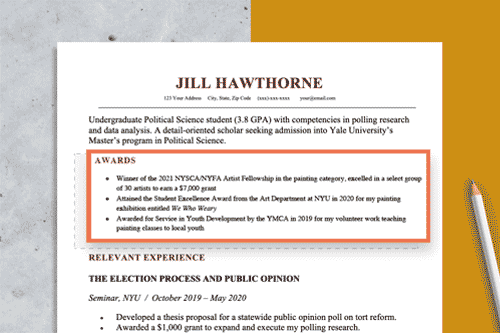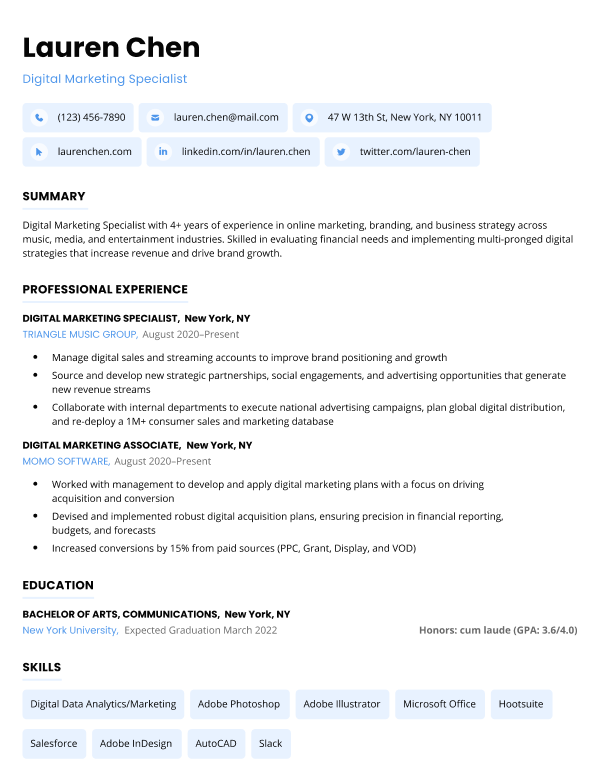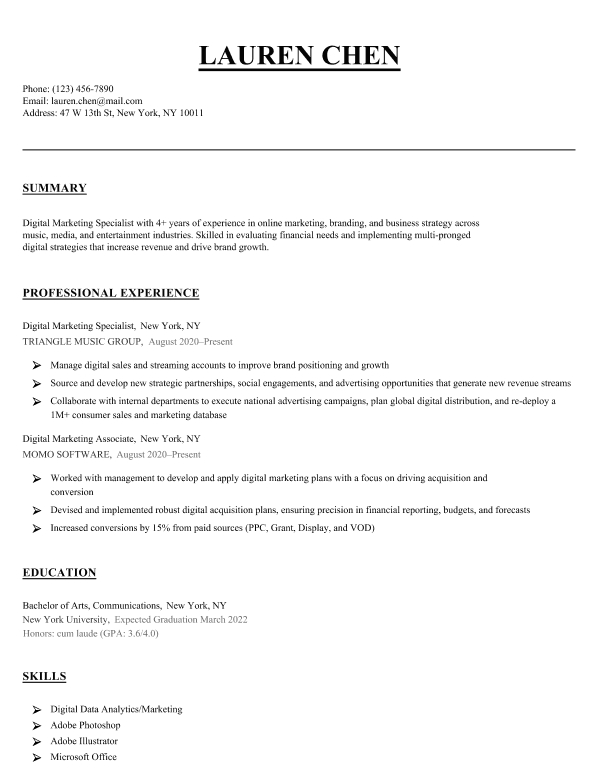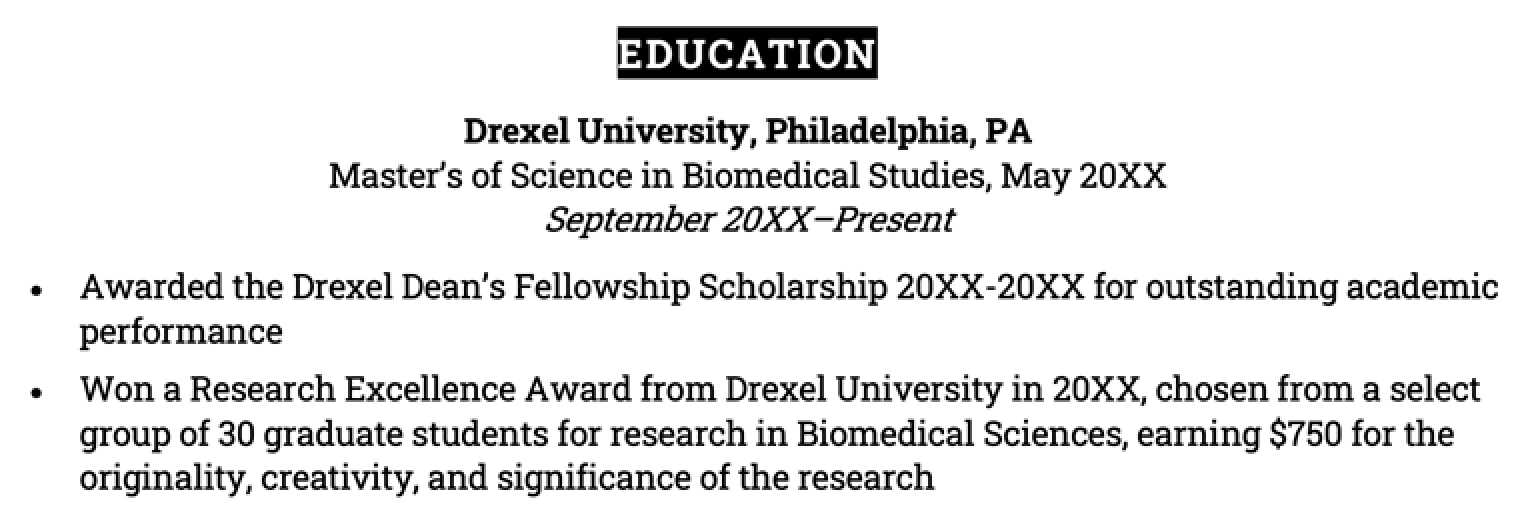Wondering how to include awards on your resume? We’ll teach you what types of awards stand out to employers and how to list them properly.
Should you put awards on your resume?
Yes, you should put awards on your resume if they add to your relevant experience and qualifications. Awards are a great way to highlight your skills and expertise in a particular area, and they’re an excellent addition for entry-level candidates who may lack relevant experience.
Our free-to-use resume builder can make you a resume in as little as 5 minutes. Just pick the template you want, and our software will format everything for you.
Types of awards to put on a resume
These are some of the best awards you can put on your resume:
Academic awards
Academic awards show a hiring manager that you care about the quality of your work and have the drive to achieve at a high level. Not only can academic awards demonstrate your qualifications in a specific field, but they can also highlight many of your other skills – for example, a strong work ethic and the ability to achieve long-term goals.
Here are some examples of academic achievement awards you can include on your resume:
- Perfect attendance record
- High GPA
- Exceptional SAT (or other exam) results
- Honors societies
- Honor roll
- AP Scholar
- National Merit Scholar
- The President’s Education Award
- An election to student government
- Scholarships
- Academic distinctions
- Dean’s list
- Honor roll
- Honor societies
- College or Departmental awards
- Fellowships
- Grants
- Graduating cum laude (either summa cum laude or magna cum laude)
- Other college awards
Academic awards should be listed in the education section of your resume in bullet points under your school information.
Example
Professional awards
Professional awards demonstrate a variety of hard and soft skills, from solid team leadership capabilities to exceptional salesmanship. Professional awards can range from annual company awards to industry-wide recognition. Company awards highlight your value as an employee, while industry awards shine a light on your expertise and authority.
Here are some of the professional awards you should put on your resume:
- Employee of the month awards
- Best performer awards
- Leadership awards
- Innovation awards
- Other employee recognition awards
- Awards from a professional organization, association, or academy
- Other recognition from respected sources, such as trade publications
Professional awards can be listed in your work experience section as bullet points under the corresponding job. If you’ve received a prominent industry award, it’s worth featuring such an achievement in your resume introduction.
Example
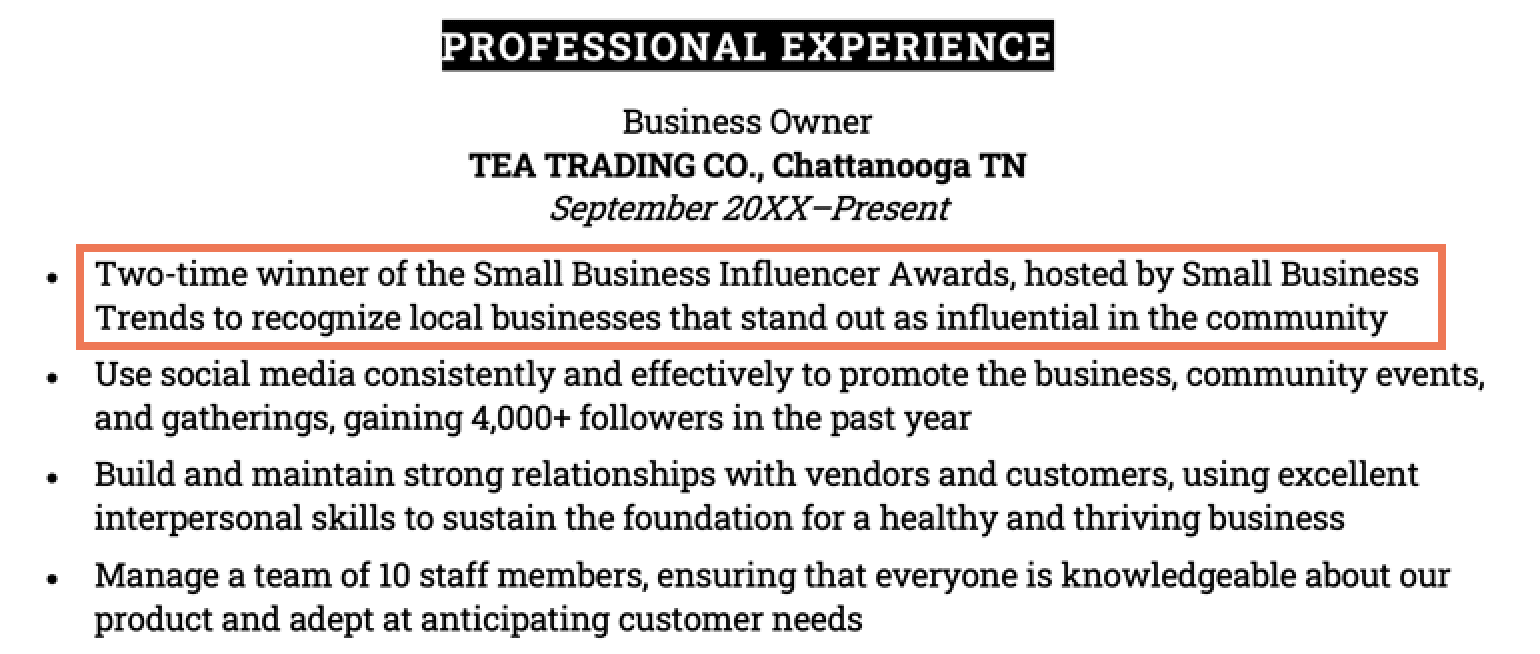
Military awards
There are a wide range of military awards given to those who demonstrate impeccable technical skills, dedication, or bravery. While these awards aren’t directly relevant to most civilian jobs, they highlight a variety of soft skills, such as leadership, loyalty, and teamwork.
If you’re applying for a military position, make sure to include them. If you’re applying for work in a civilian field, include only the awards that demonstrate skills and qualifications matching the job description.
Here are some of the military awards you might want to list on your resume:
- Military academies awards
- Personal decorations
- Campaign and service medals
- Service and training awards
- Unit awards
- Marksmanship awards
- Honorable discharge
List military awards in the work experience under the position in which the award was received, similar to professional awards.
Example
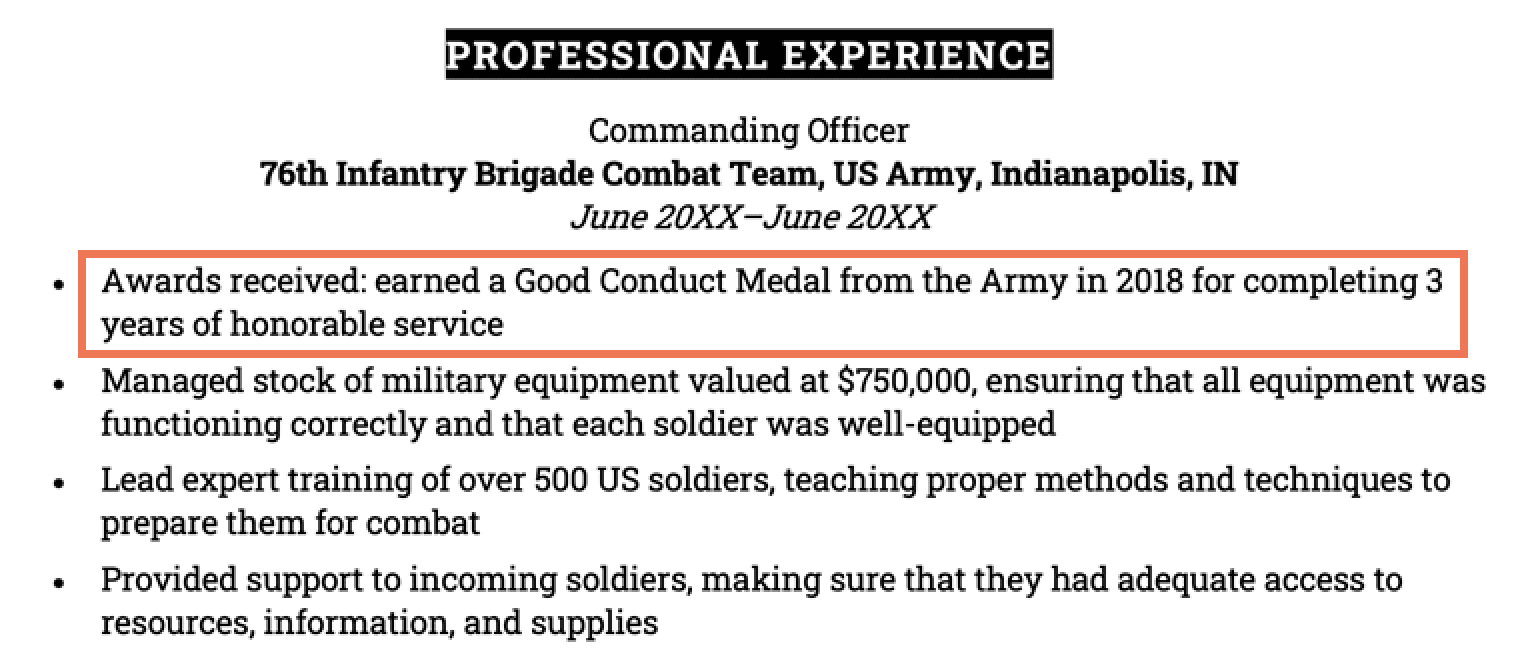
Other awards
There are all kinds of other awards you can list on your resume, from volunteer awards to community service awards. While not always directly relevant to a career, these awards are strong indicators of valuable skills that make you a desirable candidate to any hiring manager.
Here are just a few examples of other types of awards you should include on your resume:
- Community awards
- Civic awards
- Athletic awards
- Arts awards
- Cultural awards
- Service awards
- Volunteer awards
Regardless of the resume format you choose, many of these awards may not naturally fall into the work experience or education sections of your resume. If this is the case, consider adding a separate awards section to your resume, like in the example below.
Example

How to properly list awards on your resume
Here are the details you should always provide about awards on your resume:
- The award name
- Date/year received
- The purpose of the award, and the reason you won
- The scale of the award (For example, how many nominees were there, or was the competition regional or international?)
When you make your resume, put your awards in the section where they’re most relevant. For example, list an education award in the education section and a professional award in the work experience section. This way, you’re embedding awards within their relevant context, providing evidence for your qualifications.
Click to rate this article
4.4 Average rating


